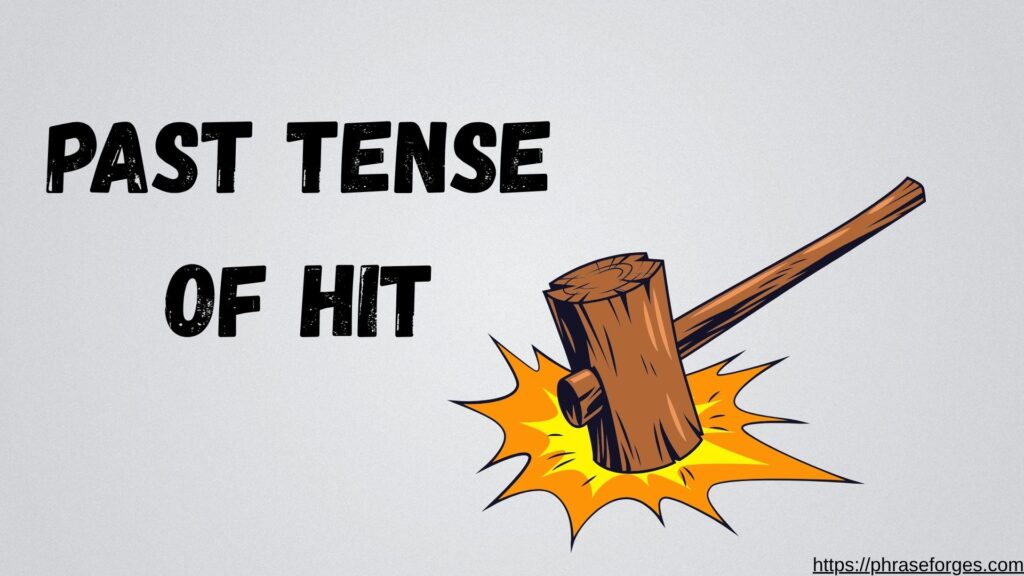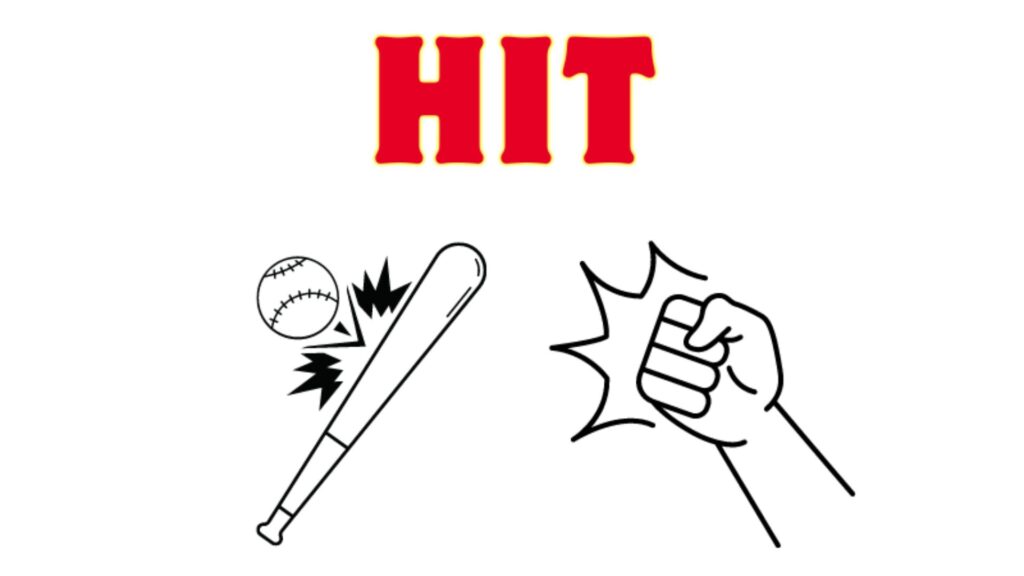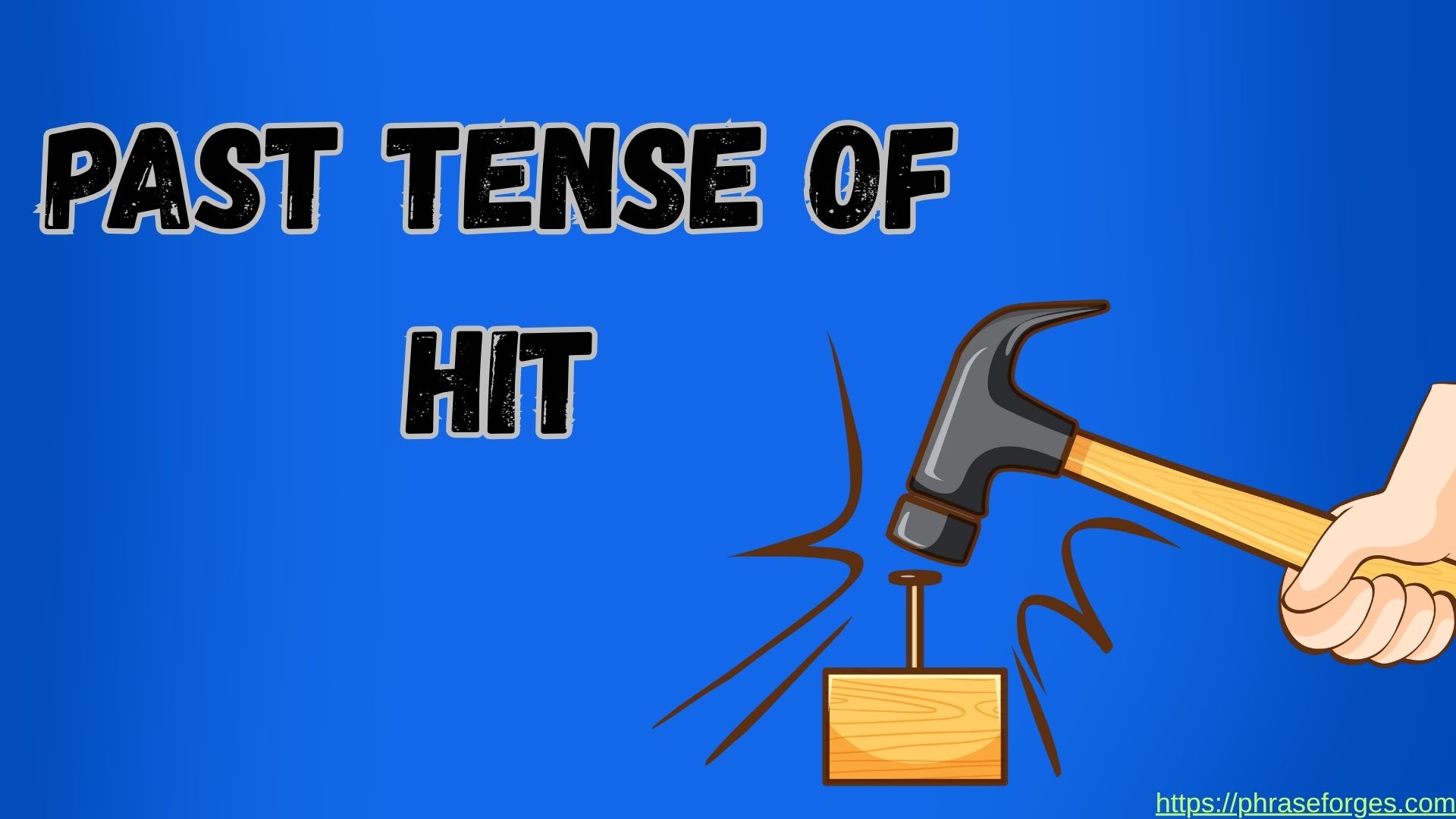If you’ve ever hesitated before writing hit past tense, you’re not alone. Many English learners (and even native speakers) wonder: Is it “hit” or “hitted”? The short answer is: “Hit” stays the same in the past tense because it’s an irregular verb. But there’s more to unpack here let’s break it down.
What’s the Correct Past Tense of Hit?

The simple past tense of hit is hit, not hitted.
For example:
- Present tense: I hit the ball.
- Past tense: Yesterday, I hit the ball.
This happens because hit is an irregular verb whose past form of hit doesn’t change spelling. Unlike regular verbs that take “-ed” (like play → played), irregular verbs in English break that pattern.
✅ Quick Reference: Verb Forms of Hit
- Base form (present): hit
- Past form (simple past): hit
- Past participle: hit
- Present participle/continuous tense: hitting
Why Not “Hitted”? Common Grammar Mistake Explained
The form “hitted” is a common grammar mistake that often comes from over-applying regular verb rules. English learners tend to think if “talk” becomes “talked”, then “hit” should become “hitted”. But verbs like hit, put, and cut don’t follow that pattern they keep their form unchanged across tenses.
Examples of Hit in Different Tenses
Let’s see hit conjugated across all major tenses:
| Tense | Example Sentence |
|---|---|
| Present | I often hit the gym after work. |
| Past (simple) | She accidentally hit the wrong button yesterday. |
| Future | They will hit their sales target next quarter. |
| Present Continuous | He is hitting the punching bag right now. |
| Past Continuous | I was hitting balls at the batting cage when it rained. |
| Present Perfect | We have hit record attendance this year. |
| Past Perfect | By then, they had already hit the milestone. |
| Future Perfect | By tomorrow, I will have hit my goal. |
Scenario Example: Email Using “Hit” Correctly
Here’s how you might use hit past form in a professional email:
Subject: Update on Yesterday’s Incident
Hi Sarah,
I wanted to let you know that yesterday, I accidentally hit “Send” before finishing the report. I’ve already corrected and resent the file, so everything’s up to date.
Thanks for understanding,
Mark
See how natural “hit” in past tense feels? Using “hitted” here would immediately look incorrect.
Figurative Uses of “Hit”
Beyond its physical strike meaning (e.g., “He hit the wall.”), hit also carries figurative meanings:
- Achieving a goal: “They finally hit their sales target.”
- Popular success: “That new show is a hit!”
- Sudden realization: “It just hit me why he was upset.”
Scenario Example (Workplace Email)
Subject: Great News We Hit Our Target!
Hi Team,
Fantastic job! We hit our quarterly goal two weeks early. Let’s keep this momentum going into the next cycle.
Best,
Linda
Understanding Hit in Perfect and Continuous Tenses
When we move into perfect tense of hit and perfect continuous tense, the structure changes slightly but the verb form doesn’t:
- Present Perfect: I have hit a new personal best in running.
- Past Perfect: She had already hit “Save” before the power went out.
- Present Perfect Continuous: We’ve been hitting deadlines consistently this quarter.
Hit as an Adjective

Interestingly, the past participle of hit can act as an adjective:
- “The store was filled with hit songs from the 90s.”
- “The hit series gained global popularity.”
Here, hit describes something popular or successful.
Common Mistakes & Fixes
Here’s a quick guide to avoid typical errors:
| Mistake | Why It’s Wrong | Correct Form |
|---|---|---|
| I hitted the ball. | Incorrect past tense form. | I hit the ball. |
| She was hit it yesterday. | Confusing passive and active forms. | She hit it yesterday. |
| They hitten the mark. | Non-existent form. | They hit the mark. |
Study Tip: Practice Verb Forms of Hit
Want to master it? Use grammar practice sentences daily. Write 5 sentences each in:
- Present: I hit…
- Past: I hit…
- Future: I will hit…
You can even practice with phrases like “hit ka past tense” if you’re learning from a bilingual perspective.
Final Takeaway: Hit or Hitted?
To wrap it up:
- The correct past tense of hit is hit, not hitted.
- It’s an irregular verb that keeps the same spelling in present, past, and past participle forms.
- Use it correctly in physical, figurative, and adjectival contexts.
By consistently practicing its forms and watching for common grammar mistakes, you’ll never second-guess it again.

